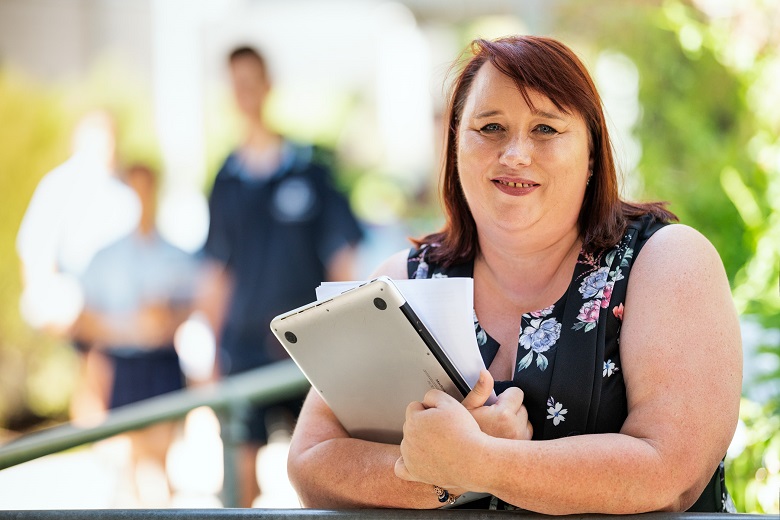Commonwealth Bank Teaching Awards
SASHA MILDENHALL
Taylors Lakes Secondary College (VIC)
SHORT BIO
A program to identify and extend gifted students is raising results across the board at Taylors Lakes Secondary College.
Anchored by her belief that, “every student should have the opportunity to learn something new every day”, Assistant Principal Sasha Mildenhall is helping colleagues understand how to modify the curriculum for highly capable students who might otherwise disengage.
The resources she has developed also address the needs of “twice exceptional” students, whose giftedness is accompanied by disability or other learning needs.
An increased proportion of Taylor Lakes students are scoring in the top two NAPLAN bands, as teachers’ growing confidence with individualised learning lifts all students.
Sasha’s work is now influencing schools internationally with the promotion of the College’s ground-breaking augmented reality teaching guide in the USA, Canada and New Zealand via the College’s New Pedagogies for Deep Learning (NPDL) partnership which supports teachers to focus on high quality learning design and instruction.
LONG BIO
With its huge enrolment of nearly 1500 students, Taylors Lakes Secondary College in Melbourne’s north west suburbs strives continually to ensure individual student needs are fully met.
Sasha Mildenhall has been at the forefront of the school’s response to that challenge, developing her interest in the education of gifted students into a specialisation that is influencing educators across the globe.
Analysis of student data in 2014 suggested the academic results of those at the high end of the achievement range hadn’t been improving in line with their potential, so Ms Mildenhall, the school’s assistant principal, led the development of an innovative Learning Enhancement and Advancement Program (LEAP).
LEAP helps teachers identify the most capable students, who may not always be the obvious high performers; particularly in a school like Taylor Lakes, where half of students come from another language background, lower skill in English may impede progress or mask strong potential.
Then teachers learn to compact curriculum elements a student has already mastered, creating time for deep learning and extension work.
LEAP also addresses the needs of “twice exceptional” students, whose giftedness is accompanied by other challenges, including autism spectrum disorders.
This work led to an invitation to Ms Mildenhall to join the seven-country New Pedagogies for Deep Learning (NPDL) partnership, via the Victorian Department of Education and Training (DET), which is a member.
NPDL focuses on competencies including critical thinking, creativity and communication, combining these with the teacher’s knowledge of a student’s achievement level, interests and aspirations to develop individual learning programs.
With 121 teachers on staff, it was not straightforward for Ms Mildenhall to transfer her own knowledge to her Taylor Lakes colleagues. So she led the development of the Learning Design Handbook, using augmented reality to let teachers view video content from international educational leaders, turning the deep learning principles into active ideas that teachers can adopt in their classrooms.
What started out as an internal resource then picked up extraordinary momentum.
First the Victorian DET published it on its website. Then the leaders of the NDPL partnership shared it with members in Canada, the USA and New Zealand.
Meanwhile, back at Taylor Lakes, there is emerging evidence that capable students’ learning is improving, with an increased proportion scoring in the top two NAPLAN bands. Teachers are more routinely evaluating class data to lift all students and collaborating across the curriculum to support students’ project work. They are also adopting a “flipped learning” approach to create the essential time for differentiation and deep learning
Ms Mildenhall is delighted that her work in individualised learning is having such influence at home and abroad: “At the heart of everything I do is the belief that every student should have the opportunity to learn something new every day,” she said.
Believing that all teachers should be lifelong learners Ms Mildenhall regularly participates in networks beyond her school to enhance her own practice and provide professional learning opportunities to others, because through collaboration, we can improve learning outcomes for every student.



